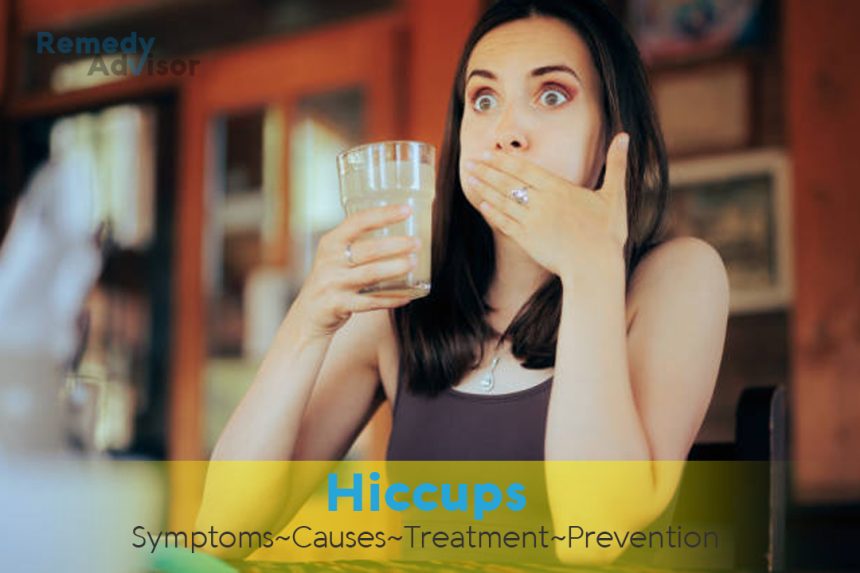What is it
Hiccups occur when a sudden rush of air in the windpipe is abruptly cut off by an unexpected spasm of the diaphragm. Hiccuping involves a disturbance in the involuntary nerves that regulate the breathing process. When these nerves are triggered, a signal is sent and the diaphragm the thin wall of muscle that separates the chest cavity from the abdominal cavity goes into spasm. At the same time, there is a sudden and simultaneous closing of the glottis (the flap of skin at the top of the windpipe). The spasm causes a sudden inhalation, but with the glottis closed, air can’t get into the lungs, and the blocked air produces the familiar sharp gasp. Hiccups typically occur from 4 to 12 spasms per minute though in severe cases, up to 100 or more per minute can occur.
Unlike a sneeze or a cough, a hiccup is a mystery ailment with no known purpose. Hiccups are involuntary, repeated over a short period of time, and normally disappear as suddenly as they appeared.
Symptoms
- Sharp, involuntary spasms of the diaphragm that produce a contraction and hic sound in the glottis the area of the larynx containing the vocal cords. Hiccups typically follow rapid eating, overeating, or excessive alcohol consumption.
What causes it
No one is quite certain of the cause of hiccups. Eating too quickly or too much, going from a warm environment to a cold one, and eating frozen treats too quickly are examples of circumstances associated with hiccups. Carbonated beverages often cause hiccups, perhaps because the carbon dioxide gas expands in the stomach. Emotional stress and abdominal surgery are also linked to hiccups. Liquor has been linked to hiccuping, too, possibly because alcohol relaxes the nerves that normally inhibit hiccups.
What if you do nothing
Common self-help measures may shorten the duration of hiccup episodes, but if you’re patient, hiccups should go away spontaneously in a matter of minutes once the diaphragm settles back into its normal rhythmic pattern.
Home remedies
There are hundreds of home remedies for short hiccup episodes, from the simple to the elaborate. None are backed with any scientific research, nor are any guaranteed to work for you every time. The remedies listed here are intended to get the diaphragm back in synch with your lungs or, at the least, to distract you from the hiccuping.
Plug your ears
Stick your index fingers in your ears for about 20 seconds. This may short circuit the nerves that control the hiccup impulse.
Try the ice cure
Fill a glass with ice cubes, add water, and slowly drink it. The rapid change of temperature in the esophagus may shut down your hiccup response.
Inhale carbon dioxide
Place the opening of a brown paper bag around your nose and mouth and seal it firmly in place with your fingers. Rapidly breathe in and out taking small breaths about 15 times, then breathe in deeply. Count slowly to 10, then release. The elevated levels of carbon dioxide in the blood may cause the hiccups to end. Repeat the cycle until the hiccups disappear.
Prevention
Hiccups cannot be prevented.







